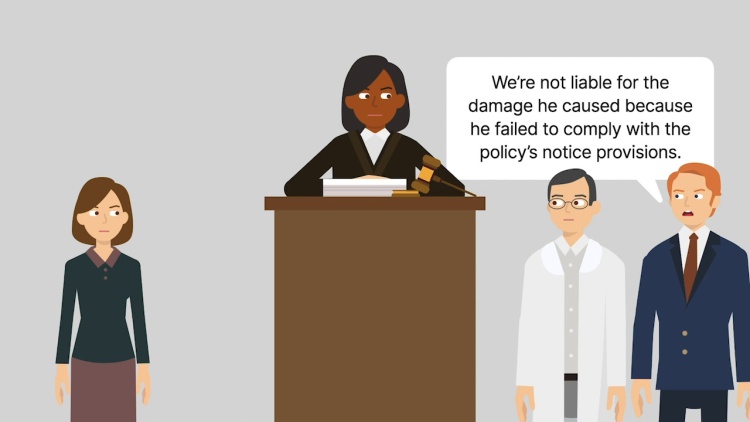Aetna Casualty and Surety Co. v. Murphy
Connecticut Supreme Court
538 A.2d 219 (1988)
- Written by Megan Petersen, JD
Facts
George A. Murphy III (plaintiff), a dentist, terminated a lease in a building insured by Aetna Casualty and Surety Co. (Aetna). In dismantling his office, Murphy caused damage to the building. Murphy personally possessed comprehensive liability insurance provided by Federal Insurance Company, Chubb Group of Insurance Companies (Chubb) (defendant). Murphy’s contract with Chubb required him to give notice to the company of insured incidents “as soon as practicable,” and notice of any claims or suits brought against him “immediately.” Aetna brought suit against Murphy for the building damages in 1983, but Murphy did not forward this information to Chubb until 1986. At this time, Murphy successfully impleaded Chubb as a third-party defendant in his suit with Aetna. Chubb moved for summary judgment on the ground that it was not liable to provide coverage for Murphy because Murphy violated the notice provisions of his insurance contract by unreasonably delaying to inform Chubb of the insured incident. The trial court granted Chubb’s motion for summary judgment. Murphy appealed on the ground that despite his inexcusable and unreasonable delay in giving notice, he was still entitled to insurance coverage because Chubb failed to allege or show prejudice due to the late notice.
Rule of Law
Issue
Holding and Reasoning (Peters, C.J.)
What to do next…
Here's why 905,000 law students have relied on our case briefs:
- Written by law professors and practitioners, not other law students. 47,100 briefs, keyed to 995 casebooks. Top-notch customer support.
- The right amount of information, includes the facts, issues, rule of law, holding and reasoning, and any concurrences and dissents.
- Access in your classes, works on your mobile and tablet. Massive library of related video lessons and high quality multiple-choice questions.
- Easy to use, uniform format for every case brief. Written in plain English, not in legalese. Our briefs summarize and simplify; they don’t just repeat the court’s language.






